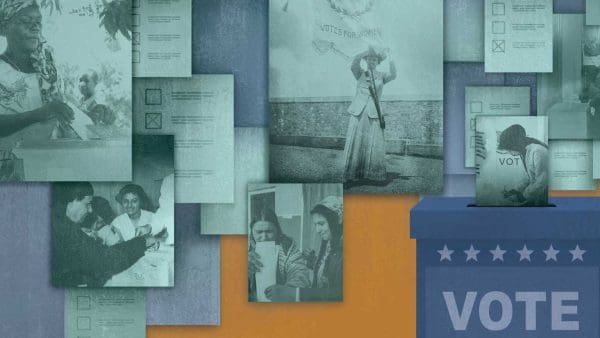When war or natural disasters occur, many activities of daily life still proceed due to the efforts of everyday people who quickly adapt to extraordinary circumstances.
Sarah Parkinson has dedicated her research to studying the behavior of organizations that are active in conflict and crisis zones. In recent years, Parkinson has focused increasingly on medical professionals, especially first responders. Ranging from local clinicians to international volunteers, these providers inhabit complex roles by working across political lines when treating people from rival factions or different nationalities.

If we want to understand the politics of conflict and disasters, it’s important that we look at most people’s lived experience, which is not on the front lines.”
—Sarah Parkinson
“It’s not their job to stand out, but medical professionals can have significant influence on public safety and social change in their societies,” she says. “If we want to understand the politics of conflict and disasters, it’s important that we look at most people’s lived experience, which is not on the front lines.”
Preparing for Challenges
An Aronson Assistant Professor of Political Science and International Studies in the Department of Political Science, Parkinson is undertaking a new project researching where war and disaster overlap.
One such place is in Palestinian refugee camps in Lebanon, which often house a mix of Palestinians, Syrians, and even migrant workers. Civil defense groups there have taken the lead in fighting wildfire outbreaks and promoting public health by educating the local population about diseases such as cholera.
“I plan on talking to various civil defense agencies in Lebanon and elsewhere about how they’re doing their work and preparing for challenges,” she says. “The research will examine the ways in which unexpected actors in crises can contribute to political dynamics.”
Parkinson’s ongoing research traces back to her dissertation work at the University of Chicago, where she earned her doctorate in 2013. Over the years, she has engaged in extensive field work in the Middle East and North Africa, working with Palestinian and Syrian refugees in Lebanon, humanitarian responders in Iraqi Kurdistan, and members of civil defense agencies in places such as Tunisia.
Repurposing Social Networks
She came to Johns Hopkins in 2016 and has further developed means of using social network theory and ethnographic methods to examine how organizations handle crises. Some of the work recently culminated in her award-winning book published in early 2023, Beyond the Lines: Social Networks and Palestinian Militant Organizations in Wartime Lebanon.
In the book, Parkinson examines the evolution of Palestinian militant groups during the Lebanese Civil War (1975–1990). Engaging in backstage labor such as supplying their forces, unmasking collaborators, and disrupting the operations of rivals was critical to the groups’ resiliency. Also key, though, was the effective repurposing of social networks to serve local populations and garner support, for instance by providing essential services such as health care—tying in with Parkinson’s focus on medical professionals in crisis zones.
Overall, Parkinson argues, the traditional emphasis on reporting the numbers of lives lost in disasters— both human-caused and natural in origin—alongside high-level political actions can unintentionally erase the politically pertinent activities of on-the-ground groups.
“A significant issue is that policy is often made from headline news, and that’s not what policy should be based on,” she says. “It’s the wrong set of relationships among affected populations being looked at.”
Note: This story was reported before the violence in Israel and Gaza started on Oct. 7.




